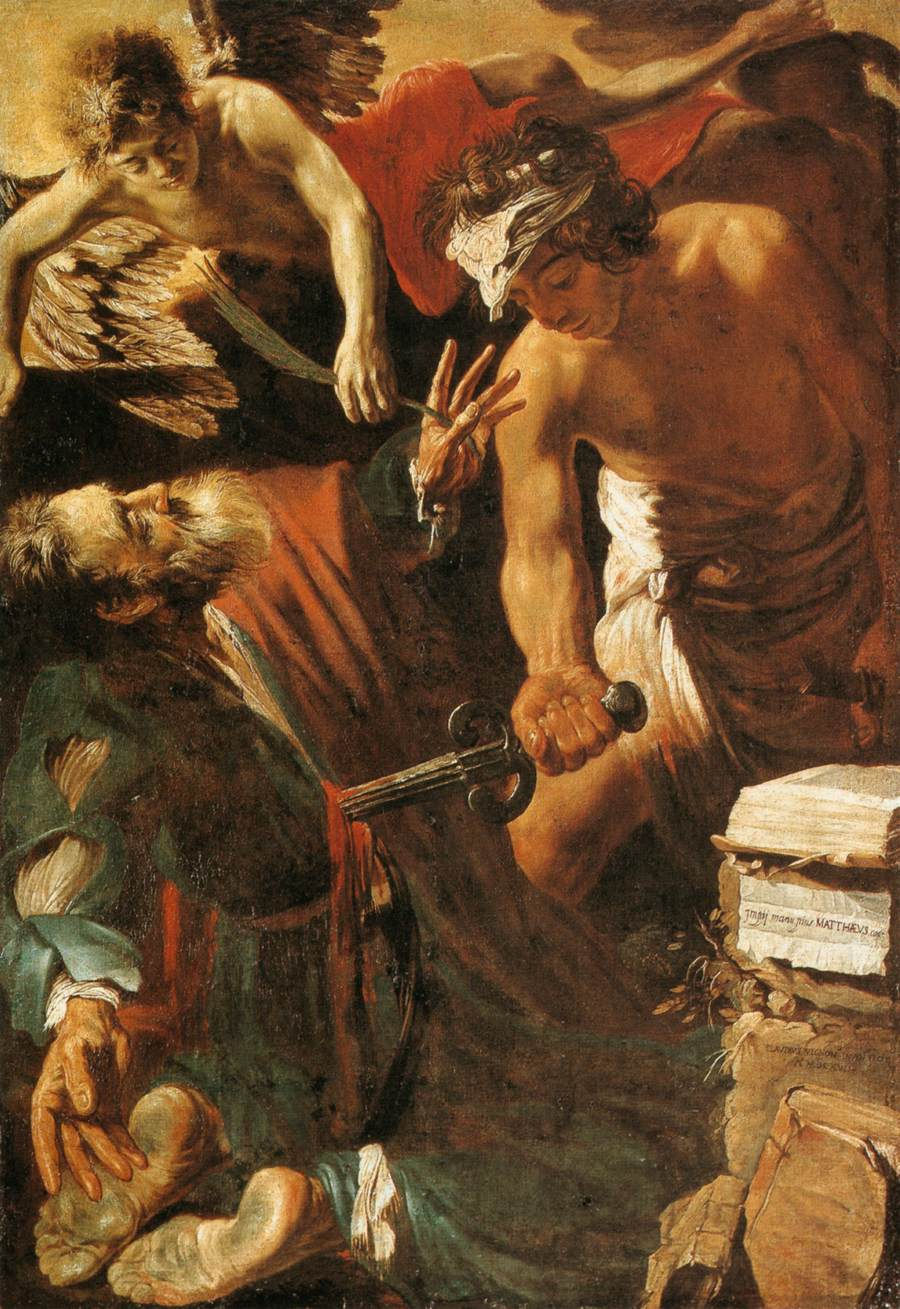The Catholic Defender: St. Matthew, IRS Collector to Apostle
- Donald Hartley

- Sep 21, 2025
- 4 min read
Updated: Sep 21, 2025
Deepertruth with special permission and aid with Franiciscan Media, a great team for the Lord

Matthew, Apostle of Jesus Christ whose parents named means, "Gift of Yahweh" who for the longest time would not be recognized as such.
Being a Jew, Matthew worked as a tax collector for the Roman rulers which set him in great distaste of the Jewish population.
Tax collectors were known to be deceitful and even violent.
(Some things seem to never change?)
A tax collector was seen as a traitor against their own people. Look at what Jesus says in regard to tax collectors:
"For if you love those who love you, what reward have you? Do not even the tax collectors do the same?" Matthew 5:46
"If he refuses to listen to them, tell it to the church; and if he refuses to listen even to the church, let him be to you as a Gentile and a tax collector". Matthew 18:17
"The Pharisee stood and was praying this to himself: 'God, I thank You that I am not like other people: swindlers, unjust, adulterers, or even like this tax collector." Luke 18:11
You can get the picture that tax collectors were seen as great sinners. St. John the Baptist offers this advice to the tax collectors coming to him for baptism, "Tax collectors also came to be baptized, and said to him, "Teacher, what shall we do?" And he said to them, "Collect no more than is appointed you." Luke 3:12-13
Jesus was not afraid to associate with prostitutes and tax collectors, whom he regarded as ones who needed a physician, "Now the tax collectors and sinners were all drawing near to hear him." Luke 15:1
Responding to criticism by the religious leaders, Jesus states, "It is not those who are healthy who need a physician, but those who are sick. "But go and learn what this means: 'I DESIRE COMPASSION, AND NOT SACRIFICE,' for I did not come to call the righteous, but sinners."

As a result of Jesus being open to reach out to sinners, many were coming to listen to him. When Jesus was in Capernaum, one such tax collector, Matthew, was sitting in his office as Jesus was walking passed him. Jesus looked at Matthew and called out to him, "Follow Me." Without saying a word, Matthew sprung up and followed Jesus.
Matthew hosted a great gathering of tax collectors and sinners inviting Jesus and the Apostles to join them. This event would change Matthew's life forever as he would be named among Jesus Apostles. Matthews life as a tax collector ended when he because an Apostle. (Matthew 10:3, Mark 3:18, Luke 6:15, and Acts 1:13)
Matthew took part in the mission of the Twelve sending them out to the "lost sheep of the house of Israel. They were to preach "The Kingdom of heaven is at hand", heal the sick, raise the dead, cleanse lepers, and cast our demons. (Matthew 10:5-15)
The phrase "Matthew's discipleship" speaks to conversion, giving up worldly goods and comforts to help those in need.
Matthew's call to follow Jesus offered him much more than temporary riches, this should encourage all of us that we too can answer the call and follow Jesus. Matthew would accompany Jesus everywhere to include the Last Supper, He fled when Jesus was arrested in the garden of Gethsemane, but he does resurface to witness Jesus Resurrection and Ascension. He was also involved in the election of Matthias to replace Judas Iscariot among the Twelve (Acts 1:10-14).

In 49 A.D. the Apostles were once again gathered together for the Council of Jerusalem and this is important because from this point forward, we see all the Apostles taking part in spreading the Catholic Faith throughout the world. Jesus told the Apostles, "But you shall receive power when the Holy Spirit has come upon you; and you shall be my witnesses in Jerusalem and in all Judea and Samaria and to the end of the earth." (Acts 1:8)
According to St. Irenaeus of Lyon, Matthew preached the Catholic Faith among the Jews telling them of Jesus Resurrection and mission. St. Clement of Alexandria testifies that St. Matthew preached for 15 years before going to Persian, Macedonia, and Syria.
Eventually, St. Matthew goes to a place called, "Myrna" the city of cannibals. It is here that St. Andrew had founded a church. Upon arrival, St. Matthew encounters the king's wife who was enslaved by a powerful demon whom St. Matthew, aided by Bishop Plato (installed by St. Andrew) casts out the demon, then performed many miracles converting many people.

God worked great signs and wonders among the people through St. Matthew, whose rod (carrying staff) grows into a great fruit-bearing tree during a particular drought feeding the hungry. The King, because of his wife's conversion to the Catholic Faith, became furious towards St. Matthew and attempts to burn him alive. But the fire turned against those against the executioners and their idols.
The King's heart only becomes more hardened when his wife pledged to live the rest of her life in celibacy. He sent a swordsman to assassinate St. Matthew.
The executioner "came behind Matthew as he stood at the Altar with his hands raised to Heaven in prayer, drove his sword into his back, and so consummated the Apostle's martyrdom".
Following this act, after many more miracles, the King himself does convert and becomes a Disciple. He orders the destruction of the Pagan Idols and declares the Christian God to be the One True God. The King abandons the throne of men for the chair of God becoming the successor of Bishop Plato upon his death having the name Matthew.
The most known legacy left to the Church by St. Matthew is the Gospel of Matthew which is placed the first book of the New Testament.
From the ancient tradition of the Church, by the authority Christ gives the Church, the Gospel of Matthew transcends time and place. Matthew is regarded as one of the four living creatures of Revelation 4:7, in art, Matthew is pictured in the form of a winged man or angel, St. Mark is depicted as a Lion, St. Luke is seen as an Ox, and St. John is seen as an Eagle. (Revelation 4:7, Ezekiel 1:1-14, Ezekiel 10:1-22, and Daniel 7:1-8
St. Matthews Feast day is celebrated on 21 September, he is the Patron Saint of accountants, bankers, bookkeepers, security guards and tax collectors and I will add, the IRS.





















Comments